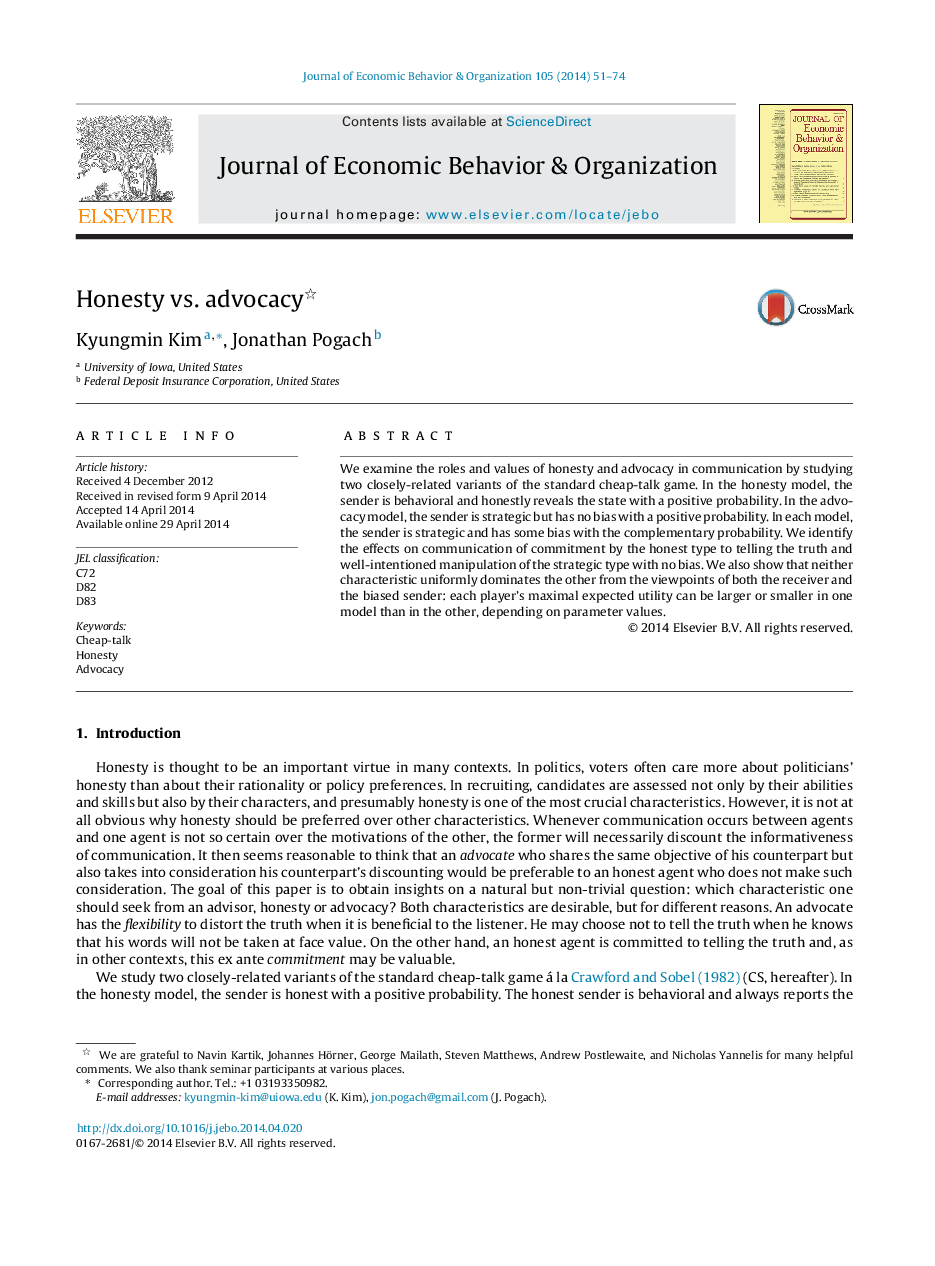| Article ID | Journal | Published Year | Pages | File Type |
|---|---|---|---|---|
| 883499 | Journal of Economic Behavior & Organization | 2014 | 24 Pages |
•We study two variants of the standard cheap-talk game with uncertainty over the sender's motive.•The sender may report honestly in the first model (honesty).•The sender may have no bias in the second model (advocacy).•Our characterization of each model complements and generalizes the literature.•We show that neither characteristic uniformly dominates the other from the viewpoints of both the receiver and the biased sender.
We examine the roles and values of honesty and advocacy in communication by studying two closely-related variants of the standard cheap-talk game. In the honesty model, the sender is behavioral and honestly reveals the state with a positive probability. In the advocacy model, the sender is strategic but has no bias with a positive probability. In each model, the sender is strategic and has some bias with the complementary probability. We identify the effects on communication of commitment by the honest type to telling the truth and well-intentioned manipulation of the strategic type with no bias. We also show that neither characteristic uniformly dominates the other from the viewpoints of both the receiver and the biased sender: each player's maximal expected utility can be larger or smaller in one model than in the other, depending on parameter values.
